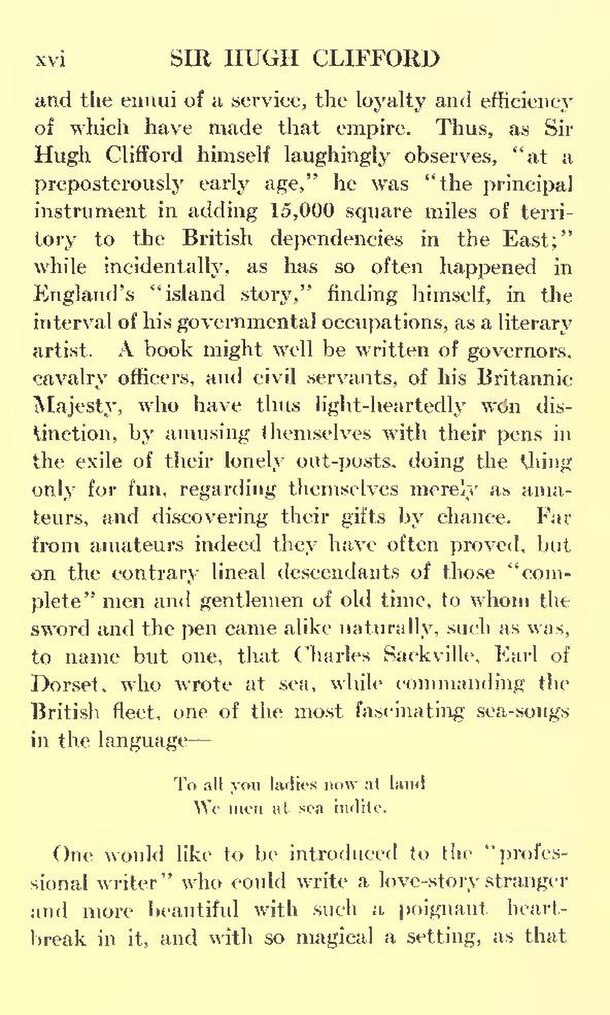and the ennui of a service, the loyalty and efficiency of which have made that empire. Thus, as Sir Hugh Clifford himself laughingly observes, "at a preposterously early age," he was "the principal instrument in adding 15,000 square miles of territory to the British dependencies in the East;" while incidentally, as has so often happened in England's "island story," finding himself, in the interval of his governmental occupations, as a literary artist. A book might well be written of governors, cavalry officers, and civil servants, of his Britannic Majesty, who have thus light-heartedly won distinction, by amusing themselves with their pens in the exile of their lonely out-posts, doing the thing only for fun, regarding themselves merely as amateurs, and discovering their gifts by chance. Far from amateurs indeed they have often proved, but on the contrary lineal descendants of those "complete" men and gentlemen of old time, to whom the sword and the pen came alike naturally, such as was, to name but one, that Charles Sackville, Earl of Dorset, who wrote at sea, while commanding the British fleet, one of the most fascinating sea-songs in the language—
To all you ladies now at land
We men at sea indite.
One would like to be introduced to the "professional writer" who could write a love-story stranger and more beautiful with such a poignant heart-break in it, and with so magical a setting, as that
